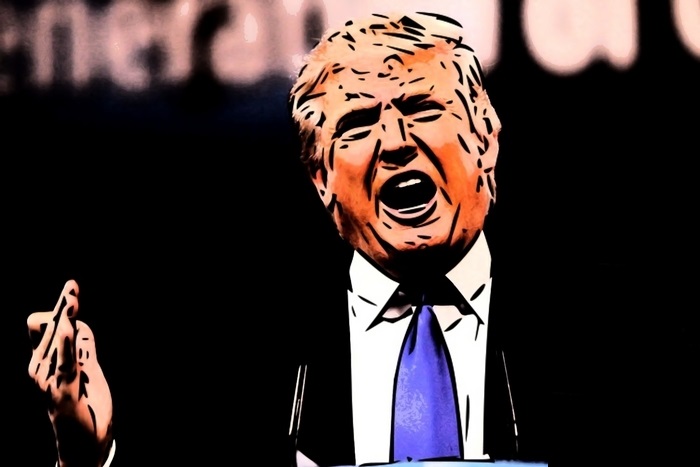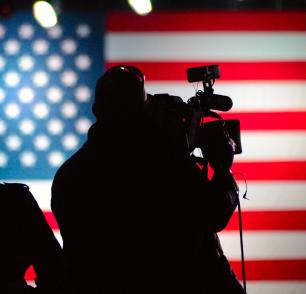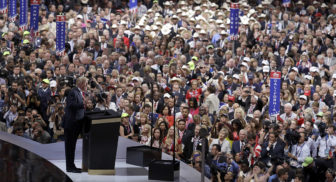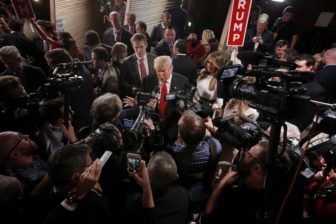

What a Trump Presidency Means for the Media: A Reading List
Donald Trump’s victory in the US presidential election has given rise to questions about credibility of traditional media outlets, the role of the media in shaping public opinion, and a changing media landscape. Even the future existence of free media as it is known today is a cause of concern for many in the media community if Trump’s attacks against the press during his election campaign are taken into account. GFMD has compiled a selection of articles encompassing these wide-ranging issues.
Post-election:
- Charlie Beckett, Director of POLIS — the journalism think-tank at the London School of Economics and Political Science (LSE) — traverses the breadth of debate on the role of the media in US presidential elections. He probes issues such as class, editorial structure, a changing media landscape and a growing local media desert to engage with the over-arching question facing the media community at present, ‘What does the Trump triumph mean for journalism, politics and social media?’
 Elyssa Pachico, Manager of International Journalists’ Network (IJNet), writes about ‘What journalists can learn from the 2016 US presidential election’. She identifies four takeaways for journalists from the Trump coverage: fact-checking may no longer be effective in a segregated media landscape, serious journalism should go beyond reporting on provocative statements, lack of community journalism and local news outlets, and exemplary works of watchdog journalism despite many criticisms levelled against the media.
Elyssa Pachico, Manager of International Journalists’ Network (IJNet), writes about ‘What journalists can learn from the 2016 US presidential election’. She identifies four takeaways for journalists from the Trump coverage: fact-checking may no longer be effective in a segregated media landscape, serious journalism should go beyond reporting on provocative statements, lack of community journalism and local news outlets, and exemplary works of watchdog journalism despite many criticisms levelled against the media.
- In his article for The Atlantic on how ‘How the U.S. Media Is Completely Unprepared to Cover a Trump Presidency’, Adam Serwer, Senior Editor at The Atlantic, argues how media objectivity is not a fixed point and is attuned to the perception of public opinion because media organizations do not want to alienate their intended audience.
- Joe Pompeo, Peter Sterne, Hadas Gold, and Alex Weprin of POLITICO Media reached out to a number of editors, executives and journalists, to gauge their reaction on ‘What went wrong? Eleven takes from media veterans’.
 According to Glen Greenwald at The Intercept, ‘In the Trump Era, Leaking and Whistleblowing Are More Urgent, and More Noble, Than Ever’. “Among the leading U.S. heroes in the war on terror have been the men and women inside various agencies of the U.S. government who discovered serious wrongdoing being carried out in secret, and then risked their own personal welfare to ensure that the public learned of what never should have been hidden in the first place”, he writes.
According to Glen Greenwald at The Intercept, ‘In the Trump Era, Leaking and Whistleblowing Are More Urgent, and More Noble, Than Ever’. “Among the leading U.S. heroes in the war on terror have been the men and women inside various agencies of the U.S. government who discovered serious wrongdoing being carried out in secret, and then risked their own personal welfare to ensure that the public learned of what never should have been hidden in the first place”, he writes.
- Brian Stelter of CNN’s Reliable Sources says it is not elitist to value the truth or reject conspiracy theories as he talks of the ‘Rise of the Anti-Media’ and how declining trust in traditional media is leading people towards hyper-partisan news outlets.
 On BBC Trending- ‘US Election 2016: Trump’s “hidden” Facebook army’.
On BBC Trending- ‘US Election 2016: Trump’s “hidden” Facebook army’.
- Olivia Solon writes for The Guardian on ‘Facebook’s failure: did fake news and polarized politics get Trump elected?’
- According to Kyle Pope of Columbia Journalism Review, ‘Here’s to the return of the journalist as malcontent’.
Pre-election:
- In his article for The New York Times Magazine, John Herrman examines “how a strange new class of media outlet has risen to take over our news feeds” ‘Inside Facebook’s (Totally Insane, Un-intentionally Gigantic, Hyperpartisan) Political-Media Machine’.
 As a fellow of the Tow Center for Digital Journalism, Svenja Ottovordemgentschenfelde, interviewed 26 political journalists of top broadsheets and cable news channels in the US about their practice of ‘Tweeting the election: Journalistic Voice, bias, and “knowing where the line is’.
As a fellow of the Tow Center for Digital Journalism, Svenja Ottovordemgentschenfelde, interviewed 26 political journalists of top broadsheets and cable news channels in the US about their practice of ‘Tweeting the election: Journalistic Voice, bias, and “knowing where the line is’.
- Sandra Mims Rowe, ‘CPJ Chairman says Trump is threat to press freedom’.
- Peter Beinart writes of ‘The Death of ‘He Said, She Said’ Journalism’ for The Atlantic and the notable change in the media practice of reporting on claims made by political candidates.
 This curated list of articles was first published by the website of the Global Forum for Media Development. GFMD is an international membership network of media assistance groups that highlights the importance of independent, pluralistic, and sustainable media in social and economic development. GIJN is one of more than 175 member organizations.
This curated list of articles was first published by the website of the Global Forum for Media Development. GFMD is an international membership network of media assistance groups that highlights the importance of independent, pluralistic, and sustainable media in social and economic development. GIJN is one of more than 175 member organizations.









